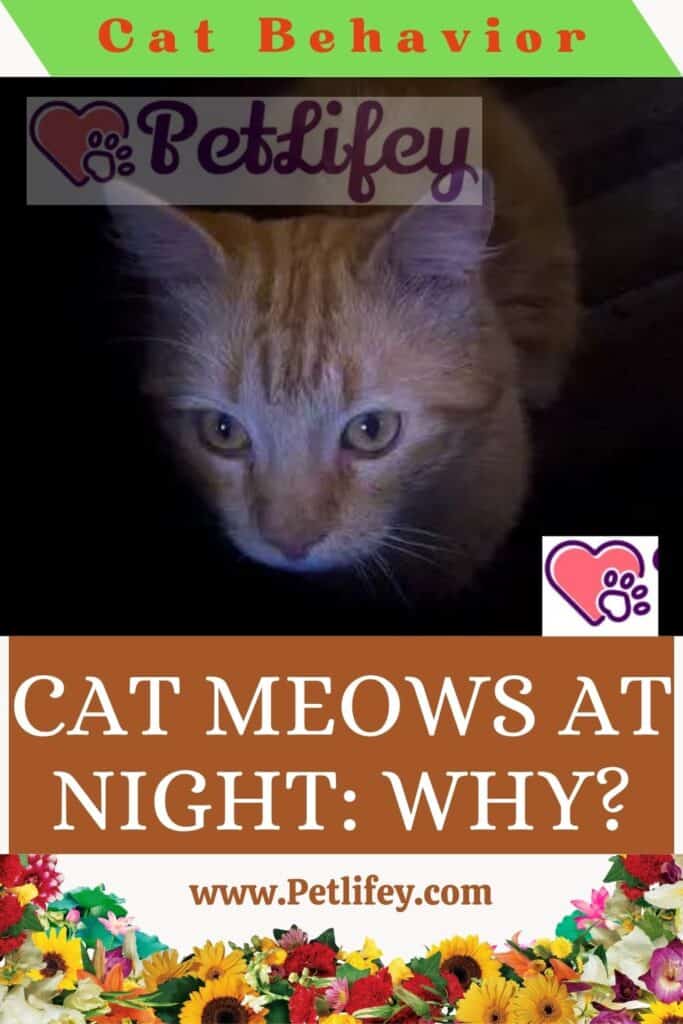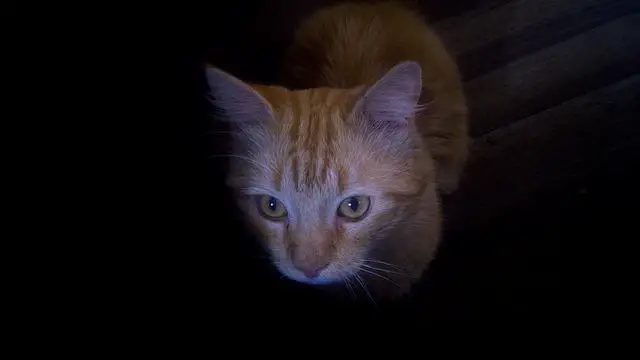
This is why the cat meows at night and is restless. What to do when the cat meows loudly or strangely, useful tips for taking care of cats, even an elderly cat.
This anomaly is more common in older cats. If your cat engages in bizarre and unusual behaviors, you would do well to contact your trusted veterinarian. Unfortunately, cats cannot speak and it must be the human who interprets all possible signals, meowing is among them.
Let’s break the ice right away and get to the point: why does the cat meow at night? The reasons may be different, if the cat is elderly, it could be a degenerative disease.
Cat meows at night
If the cat is agitated and meowing at night, there may be a nocturnal animal that disturbs him. For example, if the cat is in the garden, know that the eagle owl is a fearsome hunter. Cats are afraid of owls. Geckos and cockroaches could also be causing your cat’s nocturnal agitation. If you rule out the hypothesis of another intruding animal, then your cat may have ailments.
If the cat is extremely quiet during the day, when he is apathetic and lacking in energy but then, at night, he is agitated strongly, it could be a cognitive disorder related to old age.
The elderly cat that is affected by this cognitive disorder (a bit like Alzheimer’s syndrome develops in humans) shows several symptoms, such as:
- Fixed in the void
- Eat listlessly
- It does not respond to the stimuli of the owner
- Do not play
- Show apathy
- Loss of energy and sleepiness
- It meows loudly at night for no reason
- At night, he feels agitated and disoriented
In fact, the cat meows at night because it feels lost and confused, disoriented: it meows loudly because it is prey to anxiety and wanders around the house in search of reference points. Veterinarians assume that the cat cannot recognize the place where it is and in the agitation of him, it looks for points of reference. The cat meows loudly in distress.
Other symptoms associated with this cognitive disorder linked to senile degeneration of the brain (this is why we are talking about an elderly cat) are:
- The cat does not go to the toilet in the litter box because it does not remember where it is or because it does not remember being trained to do it in the litter box.
- The intellectual faculties of the cat decrease, so if the owner was used to playing certain games with the cat, he could find himself with a cat that does not know that he has learned certain habits.
- The feline’s agility is lowered.
What to do if the cat meows at night

First of all it is necessary to understand the cause: why does the cat meow at night? Try to control the house, are these sporadic events or a habit that is now fixed? Check that there are no intruders who can agitate the little cat. A cat in pain may meow loudly in anguish. Try to eliminate any possible causes and get your cat for a vet visit.
If the experienced veterinarian identifies signs of “feline Alzheimer’s syndrome” better defined as a degenerative disease of feline senility, he could offer you a specific treatment. Know that drug treatments are not very effective. It may be wise to supplement your cat’s diet with essential vitamins and micronutrients to support central nervous system activities. To counteract neurocognitive degeneration, veterinarians recommend giving the cat supplements based on vitamin E, omega 3 fatty acids and omega 6 fatty acids.
There is no shortage of drugs that support cerebral circulation and slow down the rate at which the disease progresses. Supplements and medications help slow the disease but do not offer complete recovery.
If your cat is young, you can prevent degenerative diseases by keeping him exercised: just like us humans, stimulation is also good for cats to keep the neural network healthy. Every day, try to devote time to the cat by doing exercises that can stimulate his physical and intellectual abilities.
If the cat meows at night, it is best to reassure him and keep him quiet. After the veterinary visit, avoid transporting the cat from one place to another and above all do not place it alongside a young cat. Cats love company but not when they are old.
If you notice loss of appetite and weight loss among other symptoms, it might be tapeworm in cats.






